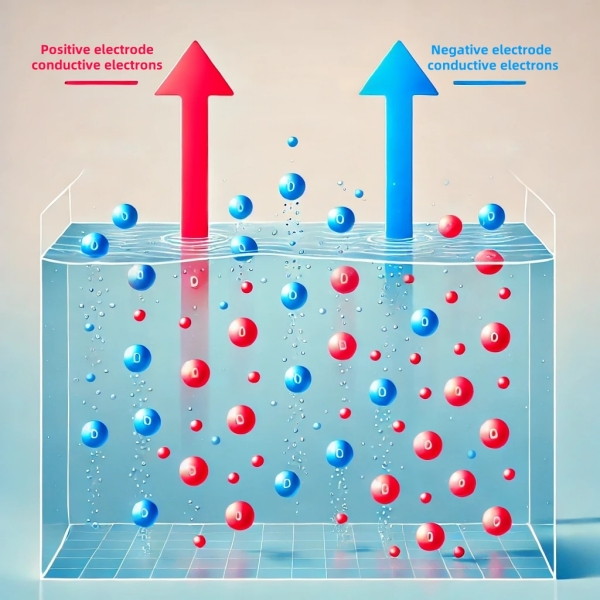Conductivity Probe How It Works
Overview
Conductivity probes, also known as conductivity sensors or conductivity detectors, are indispensable tools in various industries for measuring the electrical conductivity of solutions. These devices are crucial for understanding and monitoring the composition and purity of liquids. Electrical conductivity (EC) is usually measured in units of Siemens (S)/distance. When the number of dissolved ions (charged particles) in a solution increases, the solution's ability to carry an electric charge also increases. The sensor probe can sense the ability of positively and negatively conductive ions to measure the conductivity of the solution.

Operating Principle
The operating principle of a conductivity probe involves measuring the electrical current passing through a solution contained within a conductivity cell. An electric current is applied to the solution, and the magnitude of this current is then measured by a conductivity meter. Conductivity is calculated using the known geometry of the cell and the applied voltage.
Advanced probes, featuring a four-electrode design, offer enhanced accuracy and stability. This design often eliminates the need for pre-calibration, thereby simplifying the measurement process and providing more reliable results.
Applications
Conductivity probes have a wide range of applications across different fields. In environmental monitoring, they are used to detect water pollution by measuring the presence of ionic contaminants. This helps in identifying potential health hazards and ensuring that water bodies remain safe for human and wildlife consumption.
In water quality testing, conductivity probes monitor the conductivity of municipal water supplies and industrial processes. This ensures that water meets regulatory standards and is safe for consumption and use.
In the food processing industry, conductivity probes control the concentration of solutions to maintain consistent product quality. This is crucial for ensuring that food products meet safety standards and consumer expectations.
Furthermore, conductivity probes are essential in biomedical research for analyzing ion concentrations in biological samples. This aids in the understanding of physiological processes and diseases, contributing to advancements in medical science.

Maintenance Tips
Proper maintenance is crucial for ensuring the accuracy and longevity of conductivity probes. Regular cleaning of the electrodes prevents the accumulation of deposits that can interfere with measurements. This ensures that the probe remains in good working condition and provides accurate results.
Periodic recalibration using standard solutions is also essential. This ensures that the probe remains accurate over time and continues to provide reliable data. It is important to follow the manufacturer's instructions for recalibration to ensure the best results.
Additionally, verifying secure electrode connections is essential to prevent errors and ensure reliable data. Loose connections can cause measurement errors and affect the accuracy of the results. Therefore, it is important to regularly check and tighten electrode connections as needed.
In conclusion, conductivity probes are indispensable tools in various fields, from environmental monitoring to biomedical research. Understanding their operating principles, applications, and maintenance requirements is essential for ensuring accurate and reliable measurements. By following these guidelines, users can maximize the performance and lifespan of their conductivity probes.
Conclusion
As a manufacturer and supplier specializing in water quality monitors, analyzers/meters/electrodes, controllers and sensors/probes, we are committed to excellence and innovation. If you are looking for a water conductivity supplier & manufacturer that provides reliable quality and competitive prices, Daruifuno is your best choice. To learn more about our conductivity sensors/probes, please refer to our extensive Conductivity Product Line.
Conductivity Probe How It Works,Conductivity Probe,Conductivity Sensor,Conductivity Detector
Suzhou Delfino Environmental Technology Co., Ltd. , https://www.daruifuno.com